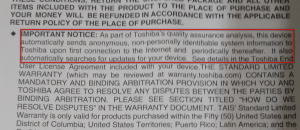(Click above to enlarge.)
Take note by “real encyclopedia” I mean a traditional, printed encyclopedia like Britannica.
Wikipedia reader Tompw ran some calculations to try and see how many volumes it would take to print Wikipedia:
- This shows 2,537 million words across 4.3 million articles (through July 2013), implying an average of 590 words per article.
- Same source shows 19.83 GB (=20,498,960 B) across 2,537 million words, implying 8.08 bytes/word. ASCII uses 1 byte/character which in turn implies 8.08 characters/word. However, this includes wikimarkup, and 5 char/word plus one for space is standard, so 6 characters/word will be assumed.
- There are currently 4,311,575 articles, which means 2,543,829,250 words, which means 15,262,975,500 characters.
- One volume: 25cm high, 5cm thick. 500 leaves, 2 pagefaces per leaf, two columns per pageface, 80 rows/column, 50 characters per row. So one volume = 8,000,000 characters, or 1,333,333 words, or 2,259.9 articles.
- Thus, the text of the English Wikipedia is currently equivalent to 1,907.9 volumes of the Encyclopædia Britannica.
- Sanity check: Encyclopædia Britannica has 44 million words across 32 volumes, or 1,375,000 words per volume. This would imply 1,850 volumes for WP.
These numbers obviously aren’t 100% accurate, simply due to the large and ever-growing size of Wikipedia but they should give you a good idea of how large the website is. What surprised me the most about this that Wikipedia isn’t that much larger than Britannica. In fact, it only recently became larger than Britannica.
[via Wikipedia]

 Email article
Email article




